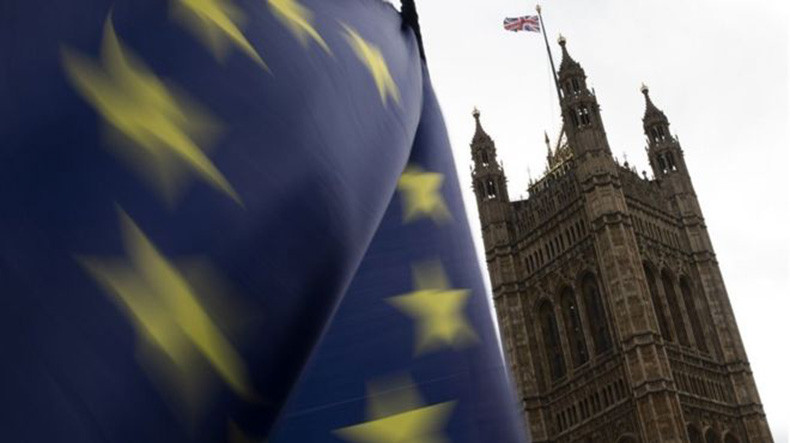
UK can cancel Brexit by unilaterally revoking Article 50, EU's top court rules
The UK has the legal power to stop Brexit by unilaterally revoking Article 50, the European Court of Justice has ruled, The Independent reports.
The ruling matches legal advice given to the court last week by its advocate general, who said as a sovereign country Britain could reverse its decision even at this late stage.
The legal decision is significant because means Britain could prevent a no-deal Brexit from happening if it wanted, even if Theresa May's deal is voted down by MPs next week.
In their judgment released on Monday morning the panel of judges said it would be “inconsistent with the EU treaties’ purpose of creating an ever closer union among the peoples of Europe to force the withdrawal of a member state” against its wishes.
The court went even further than its advocate general and said the UK could even revoke Article 50 if the period had been extended. This is significant because it means time could be bought to hold a referendum or general election whose result could see Brexit cancelled.
“When a member state has notified the European Council of its intention to withdraw from the European Union, as the UK has done, the Member States is free to revoke unilaterally that notification,” the Luxembourg court said.
“That possibility exists for as long as a withdrawal agreement concluded between the EU and that member state has not entered into force or, if no such agreement has been concluded, for as long as the two-year period from the date of the notification of the intention to withdraw from the EU, and an possible extension, has not expired.”
The court said any revocation must be decided “following a democratic process in accordance with national constitutional requirements”. In the UK, the Supreme Court ruled that a vote of parliament was required to trigger Article 50 in the first place: this condition may apply to revocation.
The UK's government lawyers had argued at the ECJ that whether Article 50 could be revoked was a hypothetical question and should not be ruled on. The Government had been using the threat of "uncertainty" to convince MPs to vote for Theresa May's deal, warning that an accidental no-deal could occur if it was rejected by the Commons.
The European Council and European Commission's lawyers were against giving member states the power to revoke Article 50 unilaterally and said the consent of other member states should be required. They argued this on the basis that an extension of the period requires the consent of member states, and said the power could potentially abused by a malign government hoping to cause trouble.
MPs are set to vote on Tuesday on whether to accept or reject the Government's deal, with the current parliamentary arithmetic indicating a resounding defeat for the government.
Related news
- May: It's my deal, no deal or no Brexit at all
- Theresa May not ruling out second MPs' vote on Brexit deal
- Theresa May facing obstacles to Brexit plan at home and in Europe
- UK, EU agree on Brexit plan
- Theresa May to travel to Brussels to finalise Brexit deal
- UK PM to continue efforts over Brexit deal
- Theresa May reveals whisky helped her handle stress amid Brexit fallout
Newsfeed
Videos






























